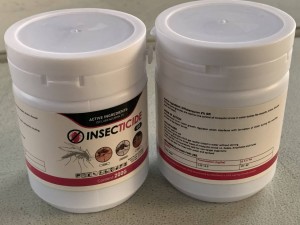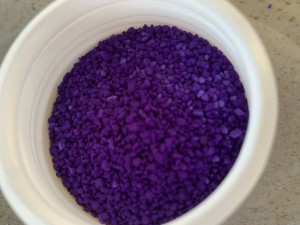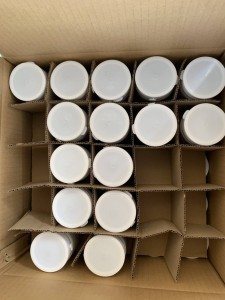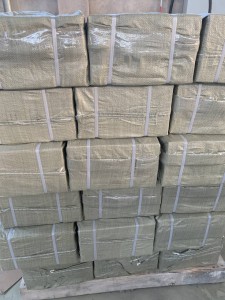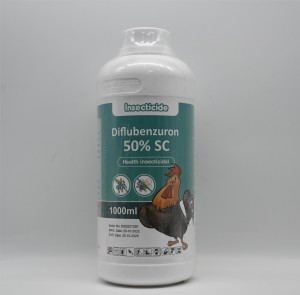Factory Supply Bulk Price Agricultural Chemicals Insecticide Pesticide Pest Control Diflubenzuron 2%GR
Factory Supply Bulk Price Agricultural Chemicals Insecticide Pesticide Pest Control Diflubenzuron 2%GR
Introduction
| Active ingredients | Diflubenzuron 2%GR |
| CAS Number | 35367-38-5 |
| Molecular Formula | C14H9ClF2N2O2 |
| Classification | A specific low-toxicity insecticide, which belongs to the benzoyl class and has stomach poisoning and contact effects on pests. |
| Brand Name | Ageruo |
| Shelf life | 2 Years |
| Purity | 2% |
| State | Solidity |
| Label | Customized |
Mode of Action
Different from conventional pesticides in the past, diflubenzuron is neither a nerve agent nor a cholinesterase inhibitor. Its main function is to inhibit the chitin synthesis of insect epidermis, while also affecting the fat body, pharyngeal body, etc. Endocrine and glands also have damaging effects, thus hindering the smooth molting and metamorphosis of insects.
Diflubenzuron is a benzoyl phenylurea insecticide, which is the same type of insecticide as Diflubenzuron No. 3. The insecticide mechanism is also by inhibiting the synthesis of chitin synthase in insects, thereby inhibiting larvae, eggs and pupae. The synthesis of epidermal chitin prevents the insect from molting normally and leads to deformed body and death.
Pests cause cumulative poisoning after feeding. Due to the lack of chitin, the larvae cannot form new epidermis, have difficulty molting, and impede pupation; the adults have difficulty emerging and laying eggs; the eggs cannot develop normally, and the hatched larvae lack hardness in their epidermis and die, thus Affecting entire generations of pests is the beauty of diflubenzuron.
The main modes of action are gastric poisoning and contact poisoning.
Action of these pests:
Diflubenzuron is suitable for a wide range of plants, and can be widely used on fruit trees such as apples, pears, peaches, and citrus; corn, wheat, rice, cotton, peanuts and other grain and oil crops; cruciferous vegetables, solanaceous vegetables, melons, etc. Vegetables, tea trees, forests and other plants.
Suitable crops:
Diflubenzuron is suitable for a wide range of plants, and can be widely used on fruit trees such as apples, pears, peaches, and citrus; corn, wheat, rice, cotton, peanuts and other grain and oil crops; cruciferous vegetables, solanaceous vegetables , melons, etc. Vegetables, tea trees, forests and other plants.
Other dosage forms
20%SC,40%SC,5%WP,25%WP,75%WP,5%EC,80%WDG,97.9%TC,98%TC
Precautions
Diflubenzuron is a desquamating hormone and should not be applied when the pests are high or in the old stage. Application should be carried out in the young stage for the best effect.
There will be a small amount of stratification during the storage and transportation of the suspension, so the liquid should be shaken well before use to avoid affecting the efficacy.
Do not allow the liquid to come into contact with alkaline substances to prevent decomposition.
Bees and silkworms are sensitive to this agent, so use it with caution in beekeeping areas and sericulture areas. If used, protective measures must be taken. Shake up the precipitate and mix well before use.
This agent is harmful to crustaceans (shrimp, crab larvae), so care should be taken to avoid contaminating the breeding waters.


